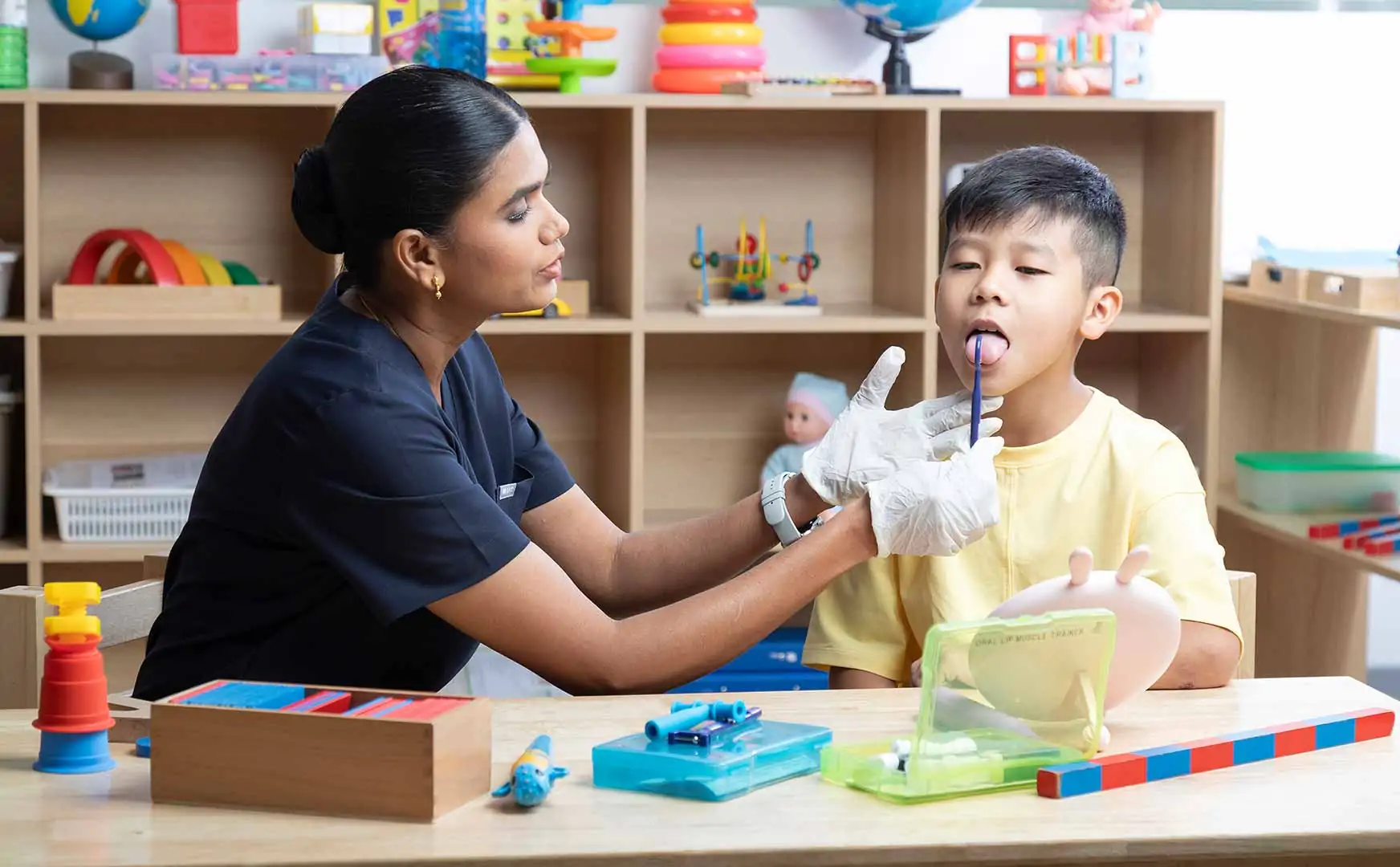Starting speech therapy can be an exciting yet uncertain time for both parents and children. Whether your child is beginning therapy for a speech delay, articulation difficulty, or communication disorder, preparation plays a big role in how smoothly the first session goes. In Cambodia, more families are now turning to professional speech therapy in Phnom Penh to help their children express themselves with confidence. Understanding what to expect—and how to get ready—can make the first experience positive and empowering.
1. Talk Positively About Speech Therapy
Children take emotional cues from their parents. If you feel anxious, they will too. Begin by explaining what speech therapy is in a simple, reassuring way. You might say, “You’re going to meet a friendly teacher who helps children learn to talk and communicate better through fun games and activities.”
Avoid labeling speech therapy as a “treatment” or suggesting something is “wrong.” Instead, emphasize growth and learning. For example, “The speech teacher will help you say your words clearly so everyone can understand you better.” This sets the tone for a supportive and enjoyable learning environment.
To learn more about how speech therapy works, visit What Is Speech Therapy? or Speech Therapy Phnom Penh.
2. Share Background Information with the Therapist
Before the first session, most speech-language pathologists (SLPs) at centers like OrbRom Center will ask parents to fill out an intake form or discuss the child’s developmental history. Be prepared to share details about your child’s early milestones, school performance, and any previous assessments.
If your child has undergone evaluations such as speech or occupational assessments, bring those reports to the session. These documents help the therapist plan personalized goals and activities. If you haven’t had an assessment yet, you can explore speech and developmental assessments offered locally in Phnom Penh to better understand your child’s needs.
3. Prepare Your Child Emotionally and Practically
It helps to talk through what will happen in the session. Let your child know they will meet a new adult, play with toys, look at pictures, and maybe practice sounds or words. You can also show short videos or pictures of therapy rooms to make the idea more concrete.
If your child has sensory sensitivities—common among children with autism or developmental differences—bring comfort items like a small toy, noise-canceling headphones, or a weighted lap pad. These can help them feel calm and secure.
For families preparing children with additional learning or behavioral needs, read more about special needs intervention programs in Phnom Penh.
4. Create a Positive Routine Around Therapy Days
Consistency is key. Set a calm and predictable routine before therapy sessions. Ensure your child is well-rested and has eaten a light snack beforehand. Avoid rushing, as this can increase stress or resistance.
If therapy is scheduled after school, give your child a short break before heading to the center. Bring a water bottle and small comfort item. This predictability helps children associate speech therapy with a positive, structured experience—especially in the early stages of intervention.
5. Bring Useful Items to the First Session
Your child’s first session is typically an assessment or introductory meeting. It’s a good idea to bring:
-
A copy of previous reports (school, developmental, or medical)
-
A notebook to jot down observations or therapist recommendations
-
Snacks or water for breaks
-
Comfort items to help your child settle
These small details ensure that the session is focused and productive.
You can also review What to Expect When Meeting a Speech-Language Pathologist to get a clearer idea of how the first session will unfold.
6. Be an Active Partner in the Process
Parents play a vital role in the success of speech therapy. During or after the session, the therapist might suggest home-based activities—like word games, reading aloud, or articulation exercises. Practice these in a fun and relaxed way rather than as “homework.”
Many SLPs use play-based therapy to keep children motivated. You can reinforce this at home through games, singing, or storytelling. To get started, try ideas from Top 10 Speech Therapy Exercises You Can Try at Home.
7. Manage Expectations and Celebrate Small Wins
Progress in speech therapy takes time. Some children show quick improvements, while others need months of steady support. Focus on effort rather than perfection. Celebrate small achievements—like pronouncing a new sound or asking for something clearly.
Remember, communication growth happens gradually and consistently. Your encouragement helps your child build confidence and resilience along the way.
For insight on how early therapy makes a difference, read The Importance of Early Speech Therapy for Children in Phnom Penh.
Conclusion
Preparing your child for their first speech therapy session sets the foundation for success. By speaking positively, building routines, and collaborating with your therapist, you help your child feel comfortable and ready to learn. In Phnom Penh and across Cambodia, dedicated centers like OrbRom Center are helping children find their voice and thrive in school and social life. With patience, teamwork, and positivity, the journey toward clearer communication can be an enjoyable and rewarding one.
We are the only Preschool specialized on children with special needs in PhnomPenh.
- Internationally qualified teachers
- Cambodia’s largest sensory room
- Outdoor swimming pool
- Covered outdoor playground
📞 Phone: 077.455.993
Telegram Link: https://t.me/OrbRom








Leave A Comment